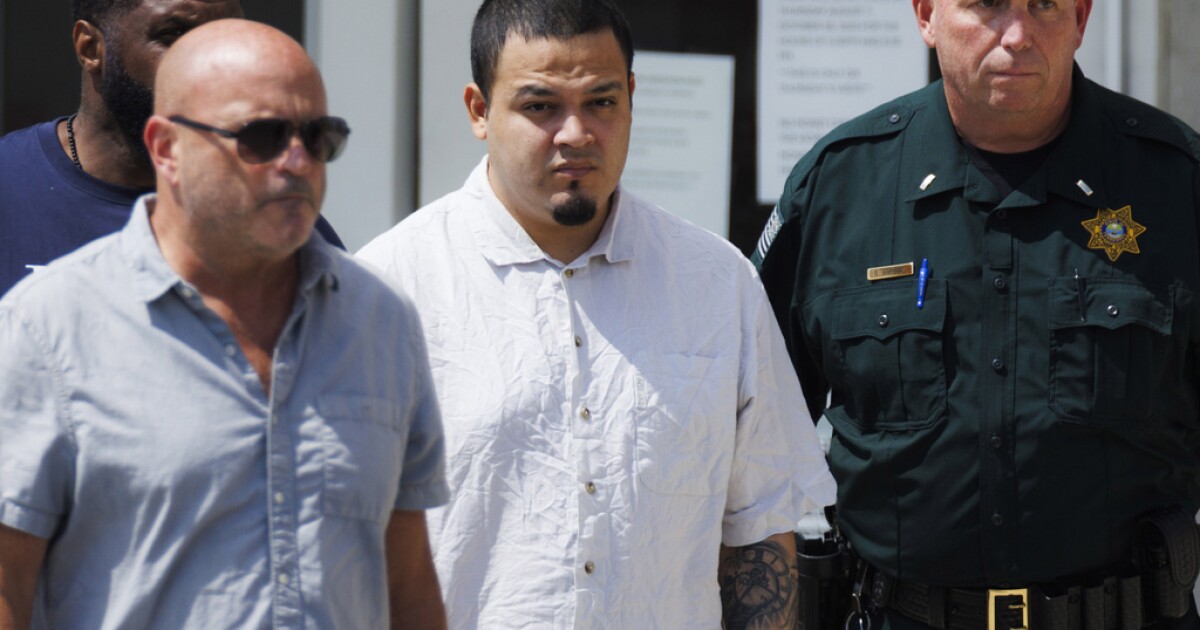UPDATE: In a shocking turn of events, Kilmar Abrego Garcia, a 30-year-old Salvadoran construction worker, has been taken into custody by U.S. Immigration and Customs Enforcement (ICE) just days after his release from prison. This urgent development occurred on Monday in Baltimore, raising significant questions about his immediate future and potential deportation.
Abrego Garcia’s situation has drawn intense scrutiny following his return to the U.S. after being deported to El Salvador. He was facing allegations of smuggling, stemming from a 2022 traffic stop where he was accused of human trafficking but was not charged until recently. The timing of his detention has ignited a fierce debate regarding immigration enforcement and judicial independence.
Officials confirm that Abrego Garcia is now at risk of immediate deportation due to his status as a migrant not lawfully present in the United States. He was previously among over 200 undocumented migrants deported to El Salvador in March 2023. However, an essential court order had prohibited his return to El Salvador, citing credible fears for his safety if returned to his home country.
The controversy escalated when U.S. District Judge Paula Xinis ruled in July that ICE could not detain Abrego Garcia immediately upon his release. The judge ordered the government to provide a three-business-day notice before initiating deportation proceedings. This ruling drew harsh criticism from Homeland Security Secretary Kristi Noem, who condemned Judge Xinis for allowing Abrego Garcia’s release and labeled him a “criminal illegal alien” with ties to the notorious MS-13 gang.
In a statement, Noem expressed her concerns, saying:
“Activist liberal judges have attempted to obstruct our law enforcement every step of the way in removing the worst of the worst criminal illegal aliens from our country.”
Adding to the urgency, Abrego Garcia’s attorneys allege that the government’s actions represent a retaliatory strategy against him for contesting his deportation. They revealed that on Friday evening, federal officials pressured him to accept a plea deal that would lead to his deportation to Costa Rica. “There can be only one interpretation of these events: the DOJ, DHS, and ICE are using their collective powers to force Mr. Abrego to choose between a guilty plea followed by relative safety, or rendition to Uganda, where his safety and liberty would be under threat,” his legal team stated.
The immediate implications of this case resonate deeply within the ongoing national debate over immigration policies and the treatment of undocumented migrants. As authorities navigate the complexities of Abrego Garcia’s legal standing, the situation remains fluid, with potential repercussions for both him and the broader immigration landscape.
As developments unfold, observers are urged to stay informed on this critical issue. What happens next could set a significant precedent in how similar cases are handled in the future. Check back for updates on this evolving story.






































































